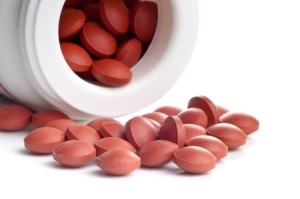Could female infertility causes include your pain reliever?
 There may be a link between female infertility and pain medicine. Long-term use of certain medications for pain and discomfort could affect your hormonal balance and contribute to problems getting pregnant. A recent study links non-steroidal anti-inflammatory drugs (NSAIDs) with ovulation disorders. The way that NSAIDs work is through an enzyme, cyclo-oxygenase (COX). COX is also an important enzyme involved in ovulation, and interfering with COX production or action can interfere with the process of ovulation. This recent study showed that women who took NSAIDs around the time of ovulation had more fertility issues. This included mature follicles in the ovaries that would not release an egg, resulting in failed ovulation and no pregnancy.
There may be a link between female infertility and pain medicine. Long-term use of certain medications for pain and discomfort could affect your hormonal balance and contribute to problems getting pregnant. A recent study links non-steroidal anti-inflammatory drugs (NSAIDs) with ovulation disorders. The way that NSAIDs work is through an enzyme, cyclo-oxygenase (COX). COX is also an important enzyme involved in ovulation, and interfering with COX production or action can interfere with the process of ovulation. This recent study showed that women who took NSAIDs around the time of ovulation had more fertility issues. This included mature follicles in the ovaries that would not release an egg, resulting in failed ovulation and no pregnancy.
Texas Fertility Center physicians make it our business to be aware of ongoing studies related to infertility. As a result of this study, we recommend that women scale back on NSAIDs while they are trying to get pregnant. This type of pain reliever and anti-inflammatory have the brand names Aleve, Advil, Ibuprofen, Motrin, and others. Ask your fertility specialist about a conservative dosage or alternative pain-relieving therapies.
Female infertility causes often include ovulation disorders
Researchers looked at NSAIDs and female infertility, conducting studies on both mice and humans. Their results reaffirm previous studies that suggest that regular use of pain-relief medications can diminish fertility. Presented at the European League Against Rheumatism Congress 2015 in Rome, the study followed 39 women of childbearing age.
After sonograms confirmed that the women had follicles growing in preparation for ovulation, the women were divided into four groups to take a 10-day dose of the NSAID medication or a placebo (sugar pill).
- Diclofenac (available by prescription) use resulted in a 93 percent decrease in ovulation rates.
- Etoricoxib (not available in the U.S.) use resulted in a 75 percent decrease in ovulation rates.
- Naproxen use resulted in a 75 percent decrease in ovulation rates.
- Placebo
In addition, the women taking NSAIDs had a decrease in luteal phase progesterone levels as well as an increased rate of developing ovarian cysts during the cycle – probably due to failed ovulation.
Unlike more complex female infertility causes, this one is reversible
Women with a long history of painful periods, “dysmenorrhea”, may habitually take NSAIDs for relief.
“The good news is that once you stop taking NSAIDs on a regular basis, the negative effects on ovulation cease to exist very quickly,” says Dr. Kaylen Silverberg.
Your fertility specialist will advise you to try other therapies such as heating pads, massage and dietary changes. Click here for tips from the National Institutes of Health.
Painful or irregular periods are a red flag to underlying infertility issues, so consider partnering with a fertility specialist if you have been trying to get pregnant for 12 months (or six months if you are over 35).
Contact us at Texas Fertility Center for a consultation with a physician who is board certified as both an obgyn and a reproductive endocrinologist.














Comments are closed.